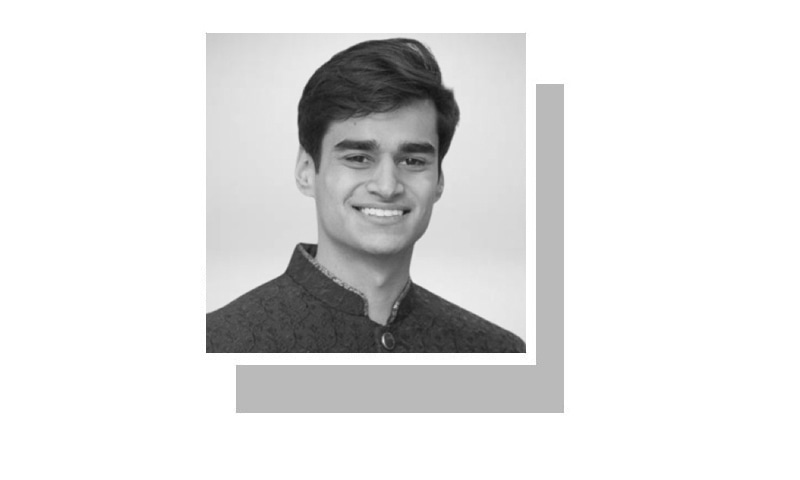A RECENT spate of laws bulldozed in parliament introduced Electronic Voting Machines (EVMs) and I-voting for overseas citizens in the next election. The opposition will likely challenge these laws in the superior courts. Politically, they fear the ruling party has landed a sizeable and favourable voter bank in overseas Pakistanis. Principally, they fear potential electoral rigging through a new, untested voting system novel to Pakistan’s political history. It is unclear which of the two drives the opposition’s calculus.
Most debates have not focused on the largest bloc of overseas Pakistanis: migrant labour in the Gulf. The majority of overseas Pakistanis — some five million — do not live in the West, but in Saudi Arabia, UAE, Oman, Qatar, Kuwait and Bahrain as predominantly blue-collared labourers. Unlike the West, Gulf states do not allow pathways to citizenship. This glass ceiling hinders any possibility of overseas Pakistanis affecting political change in their resident country, making it even more important to guarantee their right to impact change in their home country.
Voting is an essential part of citizenship in a fledgling democracy. By being deprived of the right to vote (unless they book expensive flights during elections), migrant labourers in the Gulf are divorced from the fundamental benefits of citizenship at home and abroad. The widely practised kafala system in the Gulf ensures labour migrants remain politically, economically, and socially inferior to Arab citizens.
The unique characteristic of the kafala system is that it delegates the authority needed for a migrant to enter a country to the employer, who issues short- to medium-term work permits. Employers are legally responsible for a migrant’s actions, leading them to take extreme measures with total impunity. Human rights groups have documented gross acts of systematic exploitation stemming from private actors’ totalitarian authority, including debt bondage, passport confiscation, irregular wage payments, and extreme working hours in searing conditions. Iván Szelényi, dean of Social Sciences at New York University Abu Dhabi, conducted a survey in 2018 and found that “almost 60pc of Pakistani migrants in the UAE believed they were being treated as slaves”.
Migrant labour is deprived of fundamental citizenship rights.
With little to no recourse to address grievances in the Gulf, and denial of fundamental rights at home, Pakistan’s democracy is failing some of the most vulnerable segments of our citizenry. Voting will not alleviate all hardship. However, it will send a signal to overseas Pakistanis and Gulf states that Pakistan’s government caters to overseas citizens’ demands.
Intransigent push and pull factors inherent in Pakistani migratory flows to the Gulf are unlikely to change in the coming decades. Push factors primarily include a lack of sufficient domestic employment opportunities with adequate compensation. With economic conditions stagnating and no signs of recourse, Pakistanis will continue to seek opportunities abroad to make ends meet. Chain migration, familiarity, and geographical proximity to Pakistan will make the proportion of Pakistanis in the Gulf increase over the coming years — especially if Western countries continue tightening the screws on their immigration policies.
Gulf states will also continue to host South Asian workers. A vast majority of Arab citizens — primarily in Saudi Arabia, UAE, and Qatar — have benefited from a petro-modernist, rentier state model. Regimes buy loyalty from distributing oil rents directly to citizens through monthly income supplements, land ownership, free housing and healthcare, as well as guaranteed employment in the bureaucracy. Arab elites know that changing this model to rely on Arab workers — instead of imported blue-collar labourers from South Asia — would create greater political consciousness among the domestic workforce, who would then demand a more significant say in the distribution of oil revenues and participation in economic and political decision-making. As long as this state model exists, Pakistanis will continue to migrate to the Gulf.
Equally important is the fact that these citizens will continue to return to Pakistan. Most Pakistanis in the Gulf only go for brief, short- to medium-term stints. There are several reasons: work permit expirations, getting tired of a draining lived experience under exploitative conditions, or sending enough remittances to safeguard their family’s inter-generational future. The fact that the largest bloc of overseas Pakistanis will eventually return home makes it necessary to ensure they have a say in the country’s affairs. Given that they will, one day, face intrinsic ramifications for political and economic conditions in Pakistan, they should be able to affect change through voting abroad — not as a favour, but a fundamental right of citizenship.
The writer is a South Asia Junior Fellow at the Stimson Centre, Washington, D.C.
Published in Dawn, December 6th, 2021












































